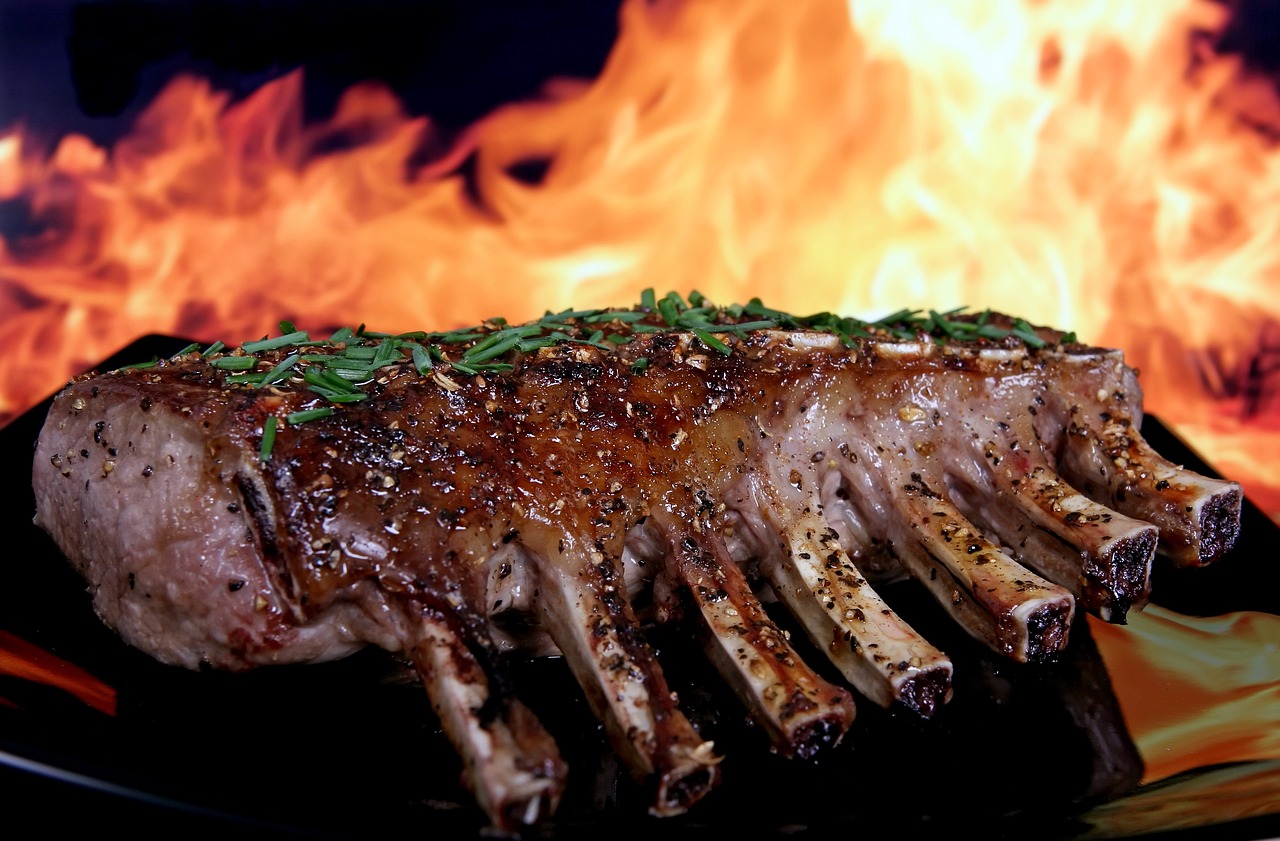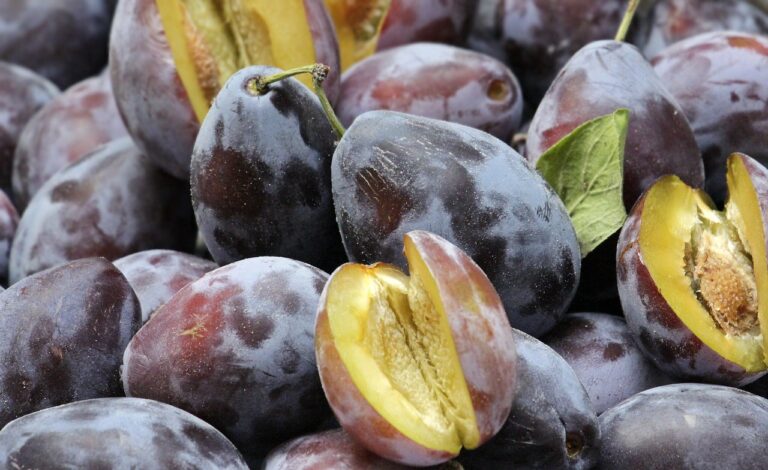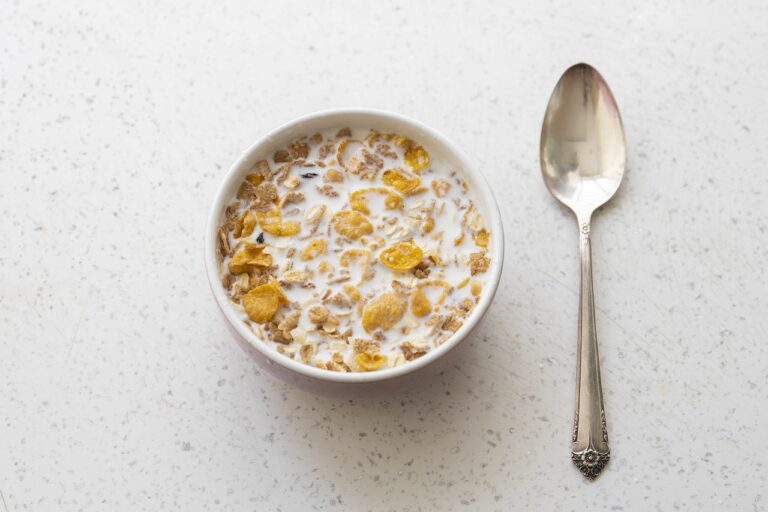10 Fantastic Reasons Why You Are Craving Lamb

Lamb, with its rich flavors and versatile culinary applications, often finds itself at the center of our cravings. This article explores the myriad reasons behind the strong desire for lamb, from its unique taste to its cultural significance. Here, we present ten compelling reasons why lamb might be more than just another item on the menu, diving into the aspects that make it an object of culinary desire.
Why Am I Craving Lamb?
1. Distinct Flavor Profile
Lamb boasts a unique flavor that sets it apart from other meats. Its rich, slightly gamey taste is both sophisticated and comforting, appealing to a wide range of palates. This distinct taste comes from the specific types of fatty acids found in lamb, which contribute to its rich flavor profile.
The versatility of lamb in terms of flavor absorption also enhances its appeal. It pairs beautifully with a variety of herbs, spices, and marinades, allowing it to take center stage in a wide array of dishes. From roasted racks to spiced kebabs, lamb’s ability to meld with different culinary traditions makes it a constant source of inspiration and craving.
2. Nutritional Benefits
Lamb is not just delicious; it’s also packed with essential nutrients that contribute to a healthy diet. Rich in high-quality protein, it supports muscle growth and repair. Additionally, lamb is an excellent source of vitamins and minerals, including vitamin B12, iron, and zinc, supporting overall health and wellbeing.
These nutritional benefits can often trigger cravings, especially for those who are looking to meet specific dietary needs. The body’s natural desire for these nutrients can manifest as a craving for lamb, particularly if one’s diet lacks these essential elements. Thus, the craving for lamb may sometimes be a signal from the body seeking nutritional fulfillment.
3. Comfort and Nostalgia
For many, the craving for lamb is deeply tied to comfort and nostalgia. Lamb dishes often feature in traditional meals and family gatherings, making them synonymous with warmth, comfort, and a sense of belonging. The aroma of lamb cooking can evoke memories of cherished moments, driving the desire for this meat.
This emotional connection to lamb intensifies the craving, as it becomes not just a desire for the taste but also for the feelings and memories it evokes. Whether it’s a slow-cooked lamb stew or a grilled lamb chop, these dishes have the power to transport us back to happy times, making the craving for lamb about more than just the food.
4. Seasonal Cravings
Seasonal changes can significantly influence our cravings, including the desire for lamb. In many cultures, lamb is traditionally eaten during certain seasons or festivals, such as spring or religious celebrations. This seasonal eating habit can create a conditioned craving for lamb during these times.
Moreover, the body naturally craves richer, more substantial foods during colder months, and lamb fits this bill perfectly. Its hearty, warming qualities make it a favored choice in autumn and winter, satisfying seasonal cravings for comforting and nourishing dishes.
5. Culinary Exploration
The increasing interest in culinary exploration and the desire to try new foods can also explain cravings for lamb. With the globalization of cuisine, more people are eager to experiment with different meats and dishes. Lamb, being less commonly consumed than chicken or beef in some cultures, offers an exotic appeal.
This curiosity drives the craving for lamb as individuals seek to explore its diverse culinary applications. From Moroccan tagines to Indian curries, lamb serves as a gateway to experiencing global flavors and traditions, fueling the desire to indulge in this rich and flavorful meat.
6. Health Consciousness
As people become more health-conscious, their food choices are increasingly influenced by nutritional value, leading to a greater craving for lamb. Given its rich profile of essential nutrients and the fact that it can be a leaner option compared to other red meats, lamb is often sought after by those aiming for a balanced diet.
The omega-3 fatty acids found in grass-fed lamb, for instance, are beneficial for heart health and can be a compelling reason for health-focused individuals to crave and choose lamb. This awareness of the health benefits associated with lamb contributes to its appeal and the cravings it inspires.
7. Social Influences
Social media and culinary television shows have a significant impact on our food cravings, including the desire for lamb. Seeing beautifully presented lamb dishes on these platforms can instantly trigger cravings. The influence of celebrity chefs and food influencers, who often showcase lamb as a gourmet ingredient, further amplifies this desire.
These social influences not only make lamb more desirable but also more accessible, by demystifying the cooking process and presenting lamb as a versatile and approachable ingredient. The craving for lamb, therefore, can often be attributed to the exposure and appeal generated by these social platforms.
8. Textural Satisfaction
The texture of lamb contributes significantly to its crave-worthy status. Its tenderness, especially when cooked properly, provides a satisfying mouthfeel that is both indulgent and comforting. The contrast between a crispy, seared exterior and a juicy, tender interior can make lamb dishes especially appealing.
This textural satisfaction plays a crucial role in why people crave lamb, as it delivers a sensory experience that is both pleasing and memorable. The anticipation of this experience can make the craving for lamb particularly intense, especially for those who appreciate the nuances of texture in their food.
9. The Rarity Factor
For some, the craving for lamb is heightened by its perceived rarity or specialness compared to more commonly eaten meats like chicken or beef. This rarity can make lamb a sought-after choice for special occasions, enhancing its appeal and the intensity of cravings for it.
The idea of indulging in something that is not a daily staple can make lamb dishes feel more luxurious and desirable. This sense of rarity and indulgence contributes to the craving for lamb, making it a coveted item on menus and in home cooking alike.
10. Global Culinary Traditions
Finally, the rich tapestry of global culinary traditions that feature lamb prominently can fuel cravings for this meat. Lamb is central to many cuisines around the world, each offering its own unique preparations and flavor combinations. This global perspective exposes individuals to the vast potential of lamb as a culinary ingredient.
The desire to recreate these international dishes at home can lead to cravings for lamb, as people seek to capture the essence of these global flavors. Whether it’s the spiciness of a Middle Eastern lamb dish or the subtle herbs used in European cooking, the international appeal of lamb is a powerful driver of cravings, making it a meat that continuously captivates the taste buds of food enthusiasts worldwide.






